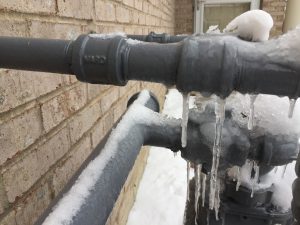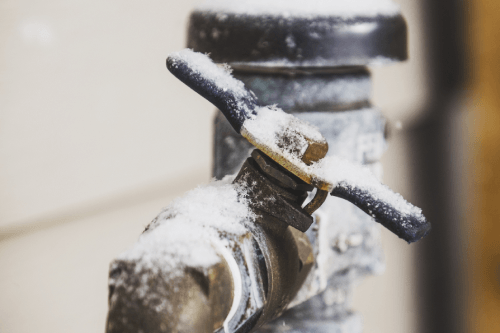Tips for Preventing Frozen Pipes in Winter: Expert Advice
Tips for Preventing Frozen Pipes in Winter: Expert Advice
Blog Article
How do you feel on the subject of Preventing and dealing with frozen pipes?

Winter can ruin your pipes, particularly by freezing pipelines. Below's exactly how to stop it from occurring and what to do if it does.
Intro
As temperature levels decrease, the threat of icy pipelines increases, potentially bring about expensive repair services and water damage. Comprehending exactly how to prevent frozen pipelines is important for house owners in cool environments.
Prevention Tips
Insulating vulnerable pipelines
Wrap pipes in insulation sleeves or utilize warmth tape to protect them from freezing temperature levels. Concentrate on pipes in unheated or external areas of the home.
Heating methods
Maintain interior spaces properly warmed, especially locations with pipes. Open closet doors to enable cozy air to flow around pipes under sinks.
Just how to recognize frozen pipes
Search for lowered water circulation from faucets, unusual smells or sounds from pipelines, and noticeable frost on exposed pipes.
Long-Term Solutions
Structural adjustments
Consider rerouting pipes far from outside wall surfaces or unheated areas. Add added insulation to attic rooms, basements, and crawl spaces.
Upgrading insulation
Buy high-quality insulation for pipelines, attic rooms, and walls. Correct insulation aids maintain constant temperature levels and reduces the danger of icy pipes.
Securing Outdoor Plumbing
Yard pipes and exterior taps
Separate and drain pipes yard pipes prior to winter. Mount frost-proof spigots or cover outdoor faucets with shielded caps.
Comprehending Frozen Pipes
What creates pipes to freeze?
Pipes freeze when subjected to temperature levels listed below 32 ° F (0 ° C) for expanded durations. As water inside the pipelines ices up, it broadens, taxing the pipe wall surfaces and possibly causing them to rupture.
Threats and damages
Icy pipelines can result in water disruptions, building damage, and expensive repair services. Ruptured pipelines can flooding homes and create extensive structural damage.
Signs of Frozen Pipeline
Determining frozen pipes early can prevent them from bursting.
What to Do If Your Pipes Freeze
Immediate activities to take
If you believe icy pipes, keep faucets available to soothe pressure as the ice thaws. Utilize a hairdryer or towels taken in hot water to thaw pipelines slowly.
Final thought
Preventing icy pipes requires aggressive actions and fast responses. By comprehending the causes, indicators, and safety nets, home owners can shield their pipes during cold weather.
5 Ways to Prevent Frozen Pipes
Drain Outdoor Faucets and Disconnect Hoses
First, close the shut-off valve that controls the flow of water in the pipe to your outdoor faucet. Then, head outside to disconnect and drain your hose and open the outdoor faucet to allow the water to completely drain out of the line. Turn off the faucet when done. Finally, head back to the shut-off valve and drain the remaining water inside the pipe into a bucket or container. Additionally, if you have a home irrigation system, you should consider hiring an expert to clear the system of water each year.
Insulate Pipes
One of the best and most cost-effective methods for preventing frozen water pipes is to wrap your pipes with insulation. This is especially important for areas in your home that aren’t exposed to heat, such as an attic. We suggest using foam sleeves, which can typically be found at your local hardware store.
Keep Heat Running at 65
Your pipes are located inside your walls, and the temperature there is much colder than the rest of the house. To prevent your pipes from freezing, The Insurance Information Institute suggests that you keep your home heated to at least 65 degrees, even when traveling. You may want to invest in smart devices that can keep an eye on the temperature in your home while you’re away.
Leave Water Dripping
Moving water — even a small trickle — can prevent ice from forming inside your pipes. When freezing temps are imminent, start a drip of water from all faucets that serve exposed pipes. Leaving a few faucets running will also help relieve pressure inside the pipes and help prevent a rupture if the water inside freezes.
Open Cupboard Doors
Warm your kitchen and bathroom pipes by opening cupboards and vanities. You should also leave your interior doors ajar to help warm air circulate evenly throughout your home.

We were guided to that report on Prevent Frozen Pipes through a pal on a different web blog. If you enjoyed reading our post if you please remember to share it. Thanks a lot for going through it.
Book Your Installation Report this page